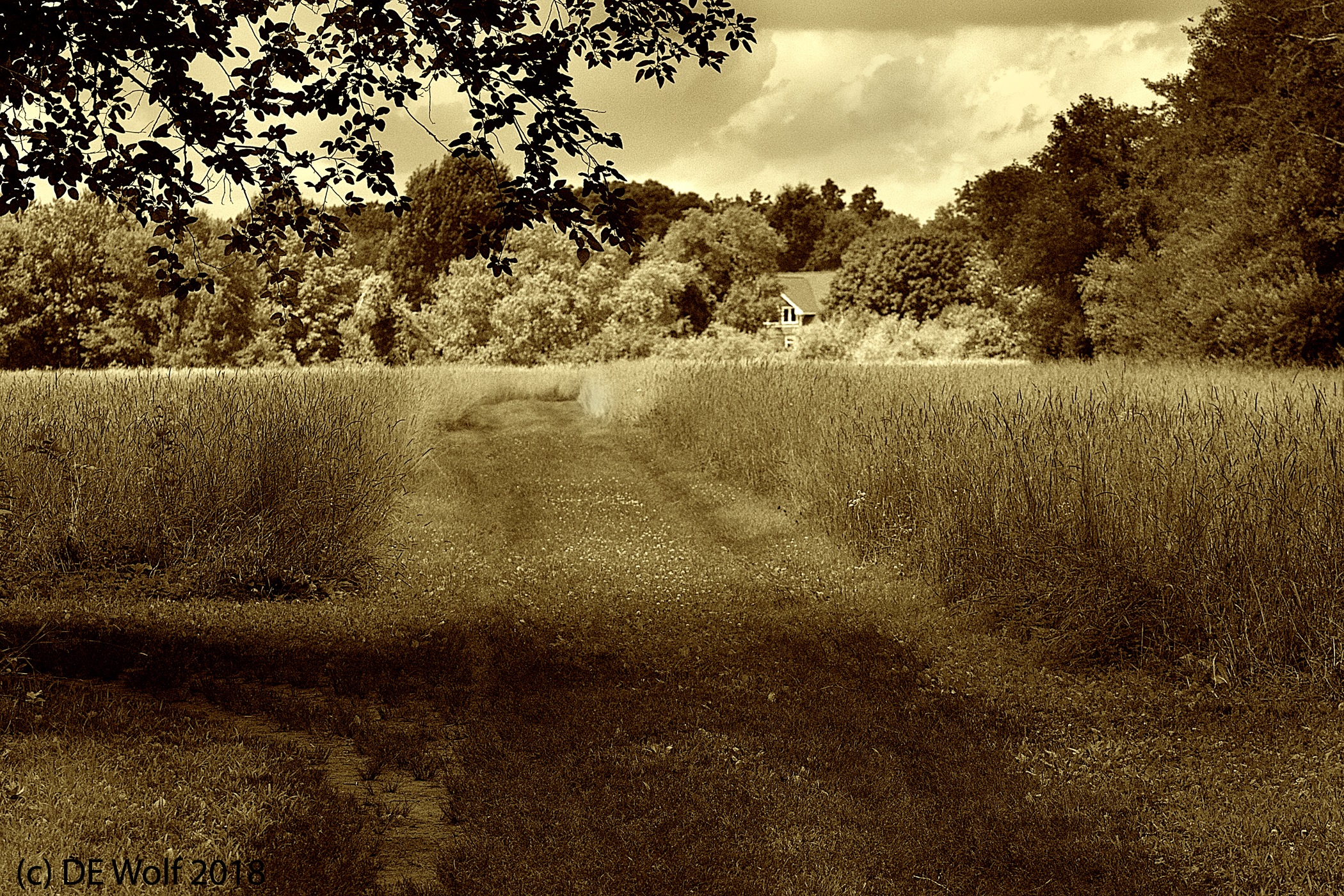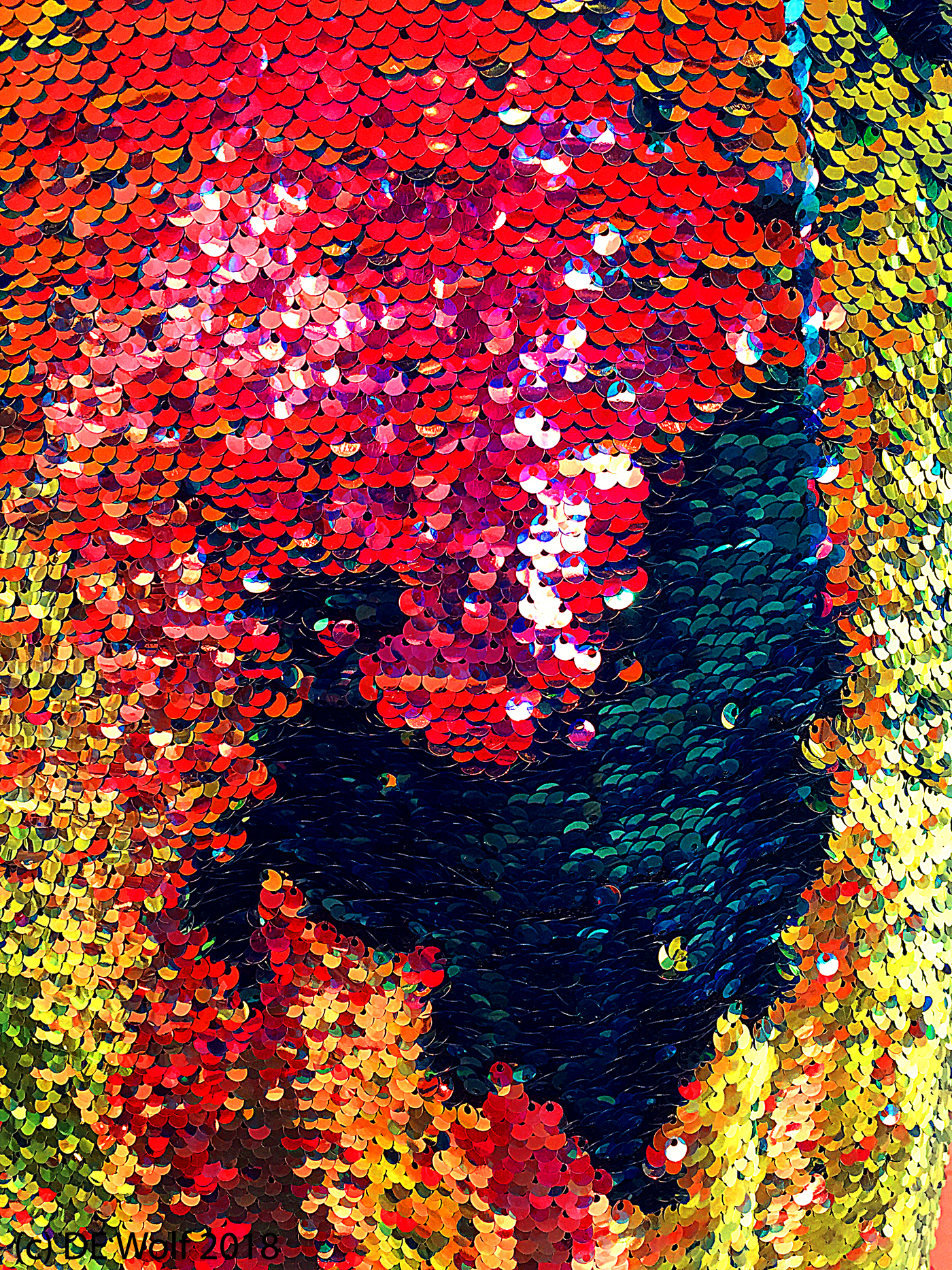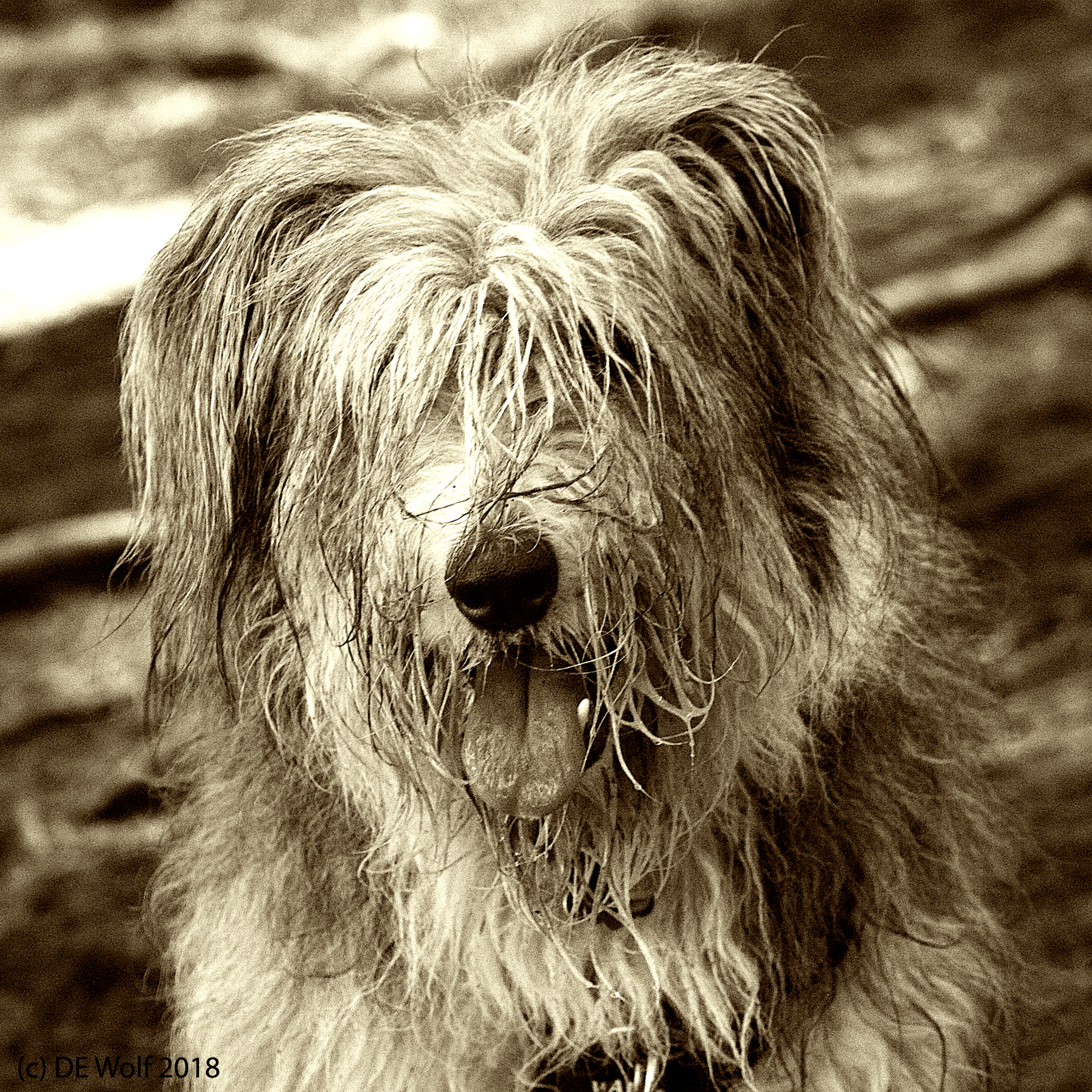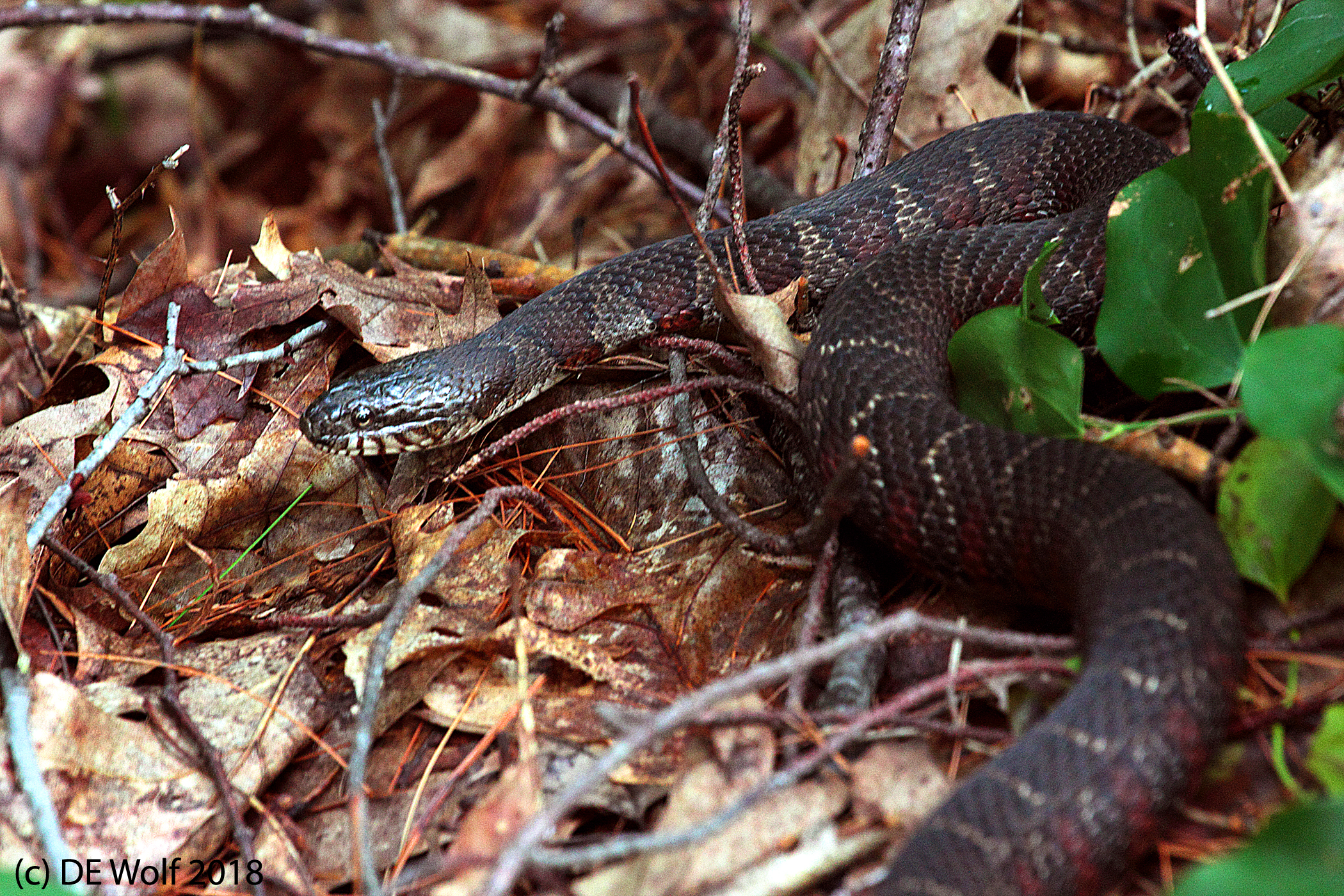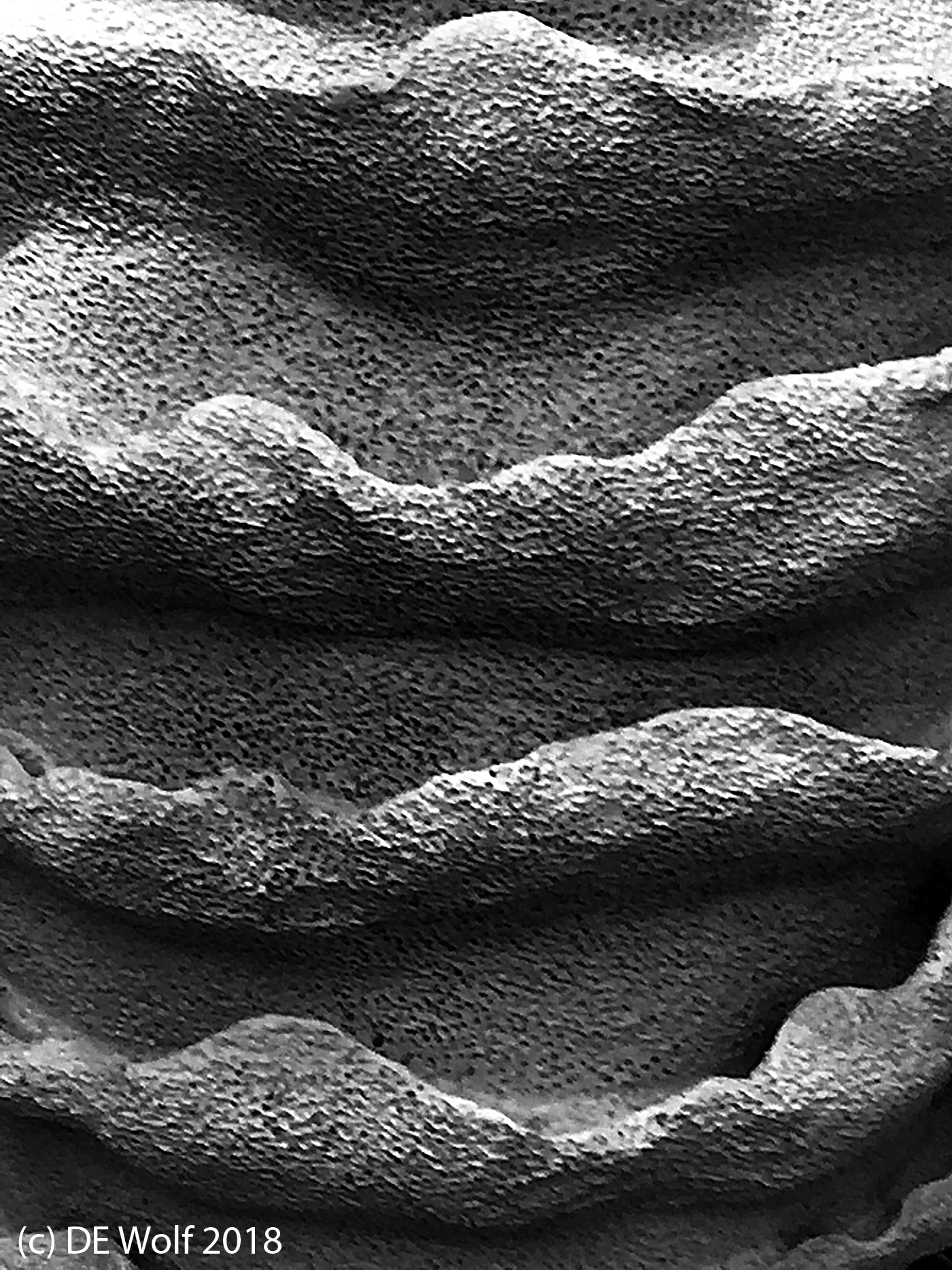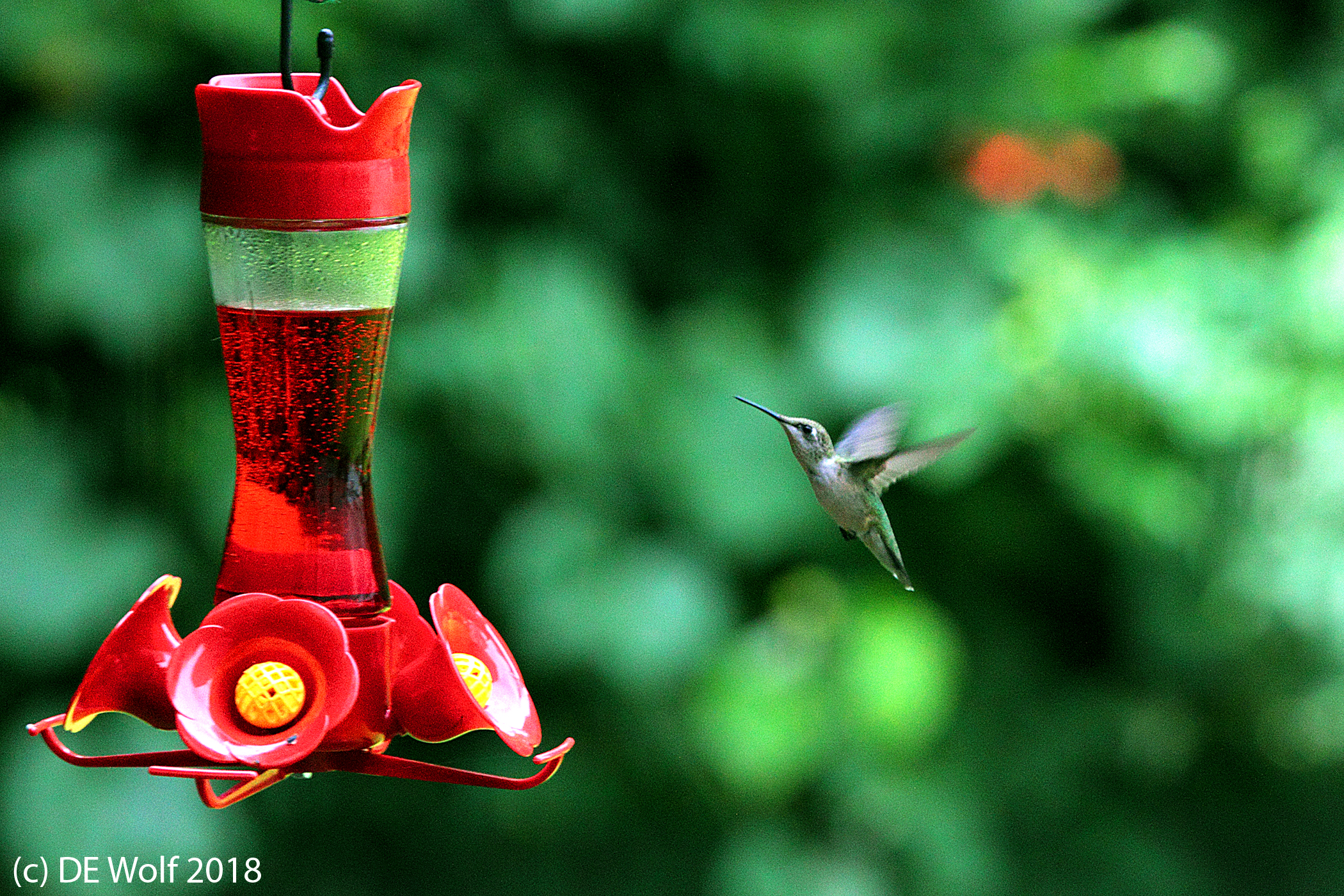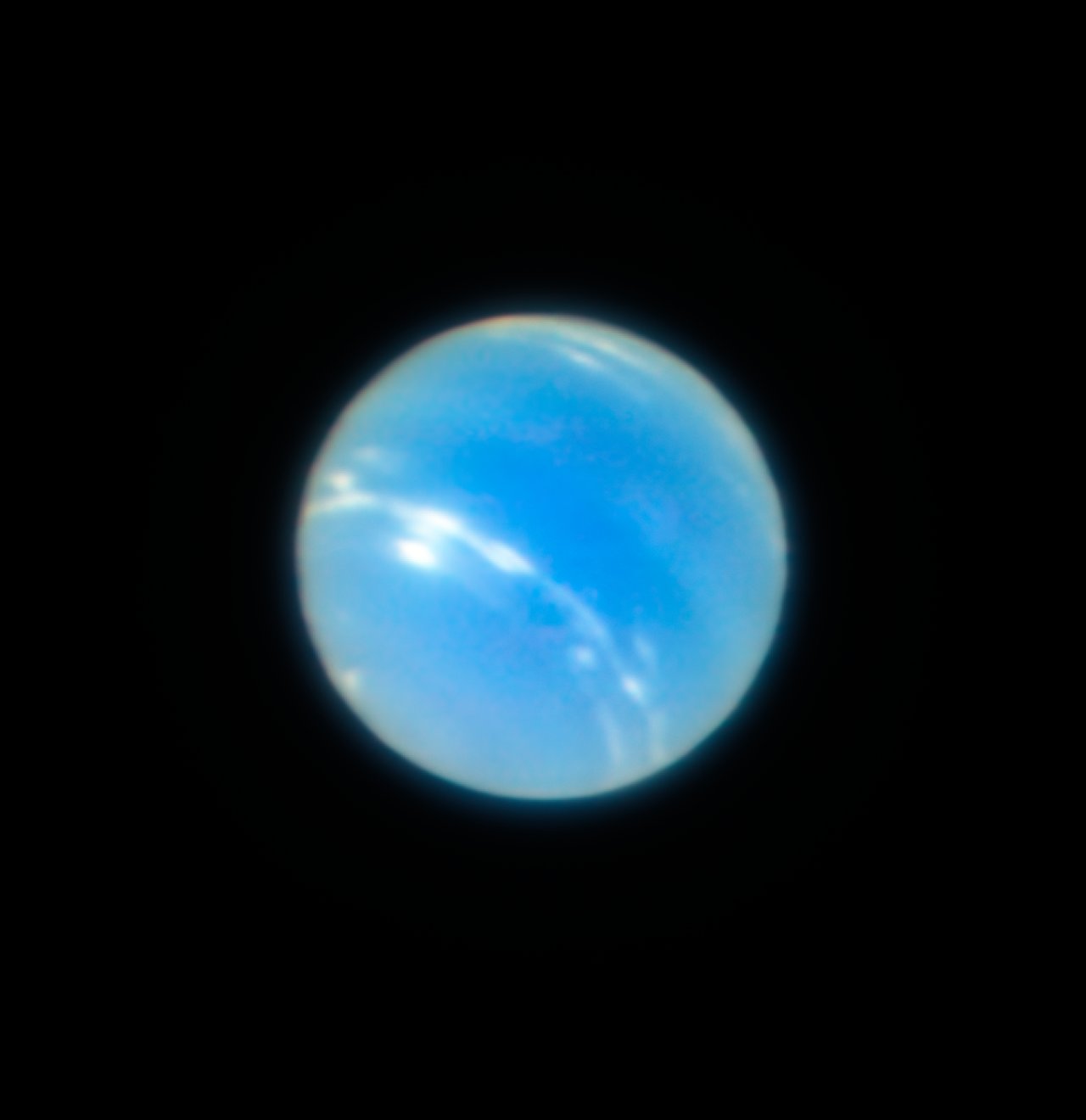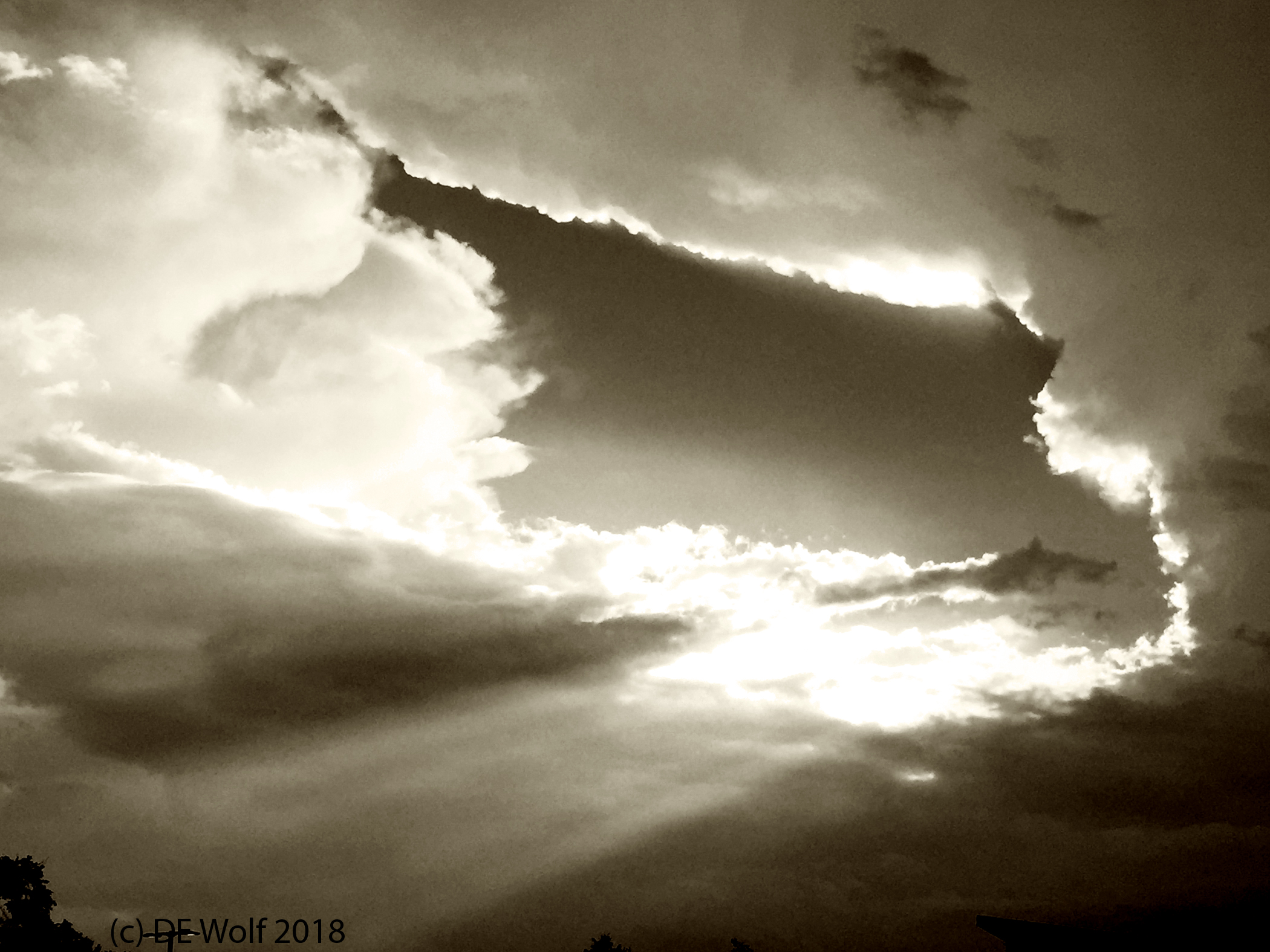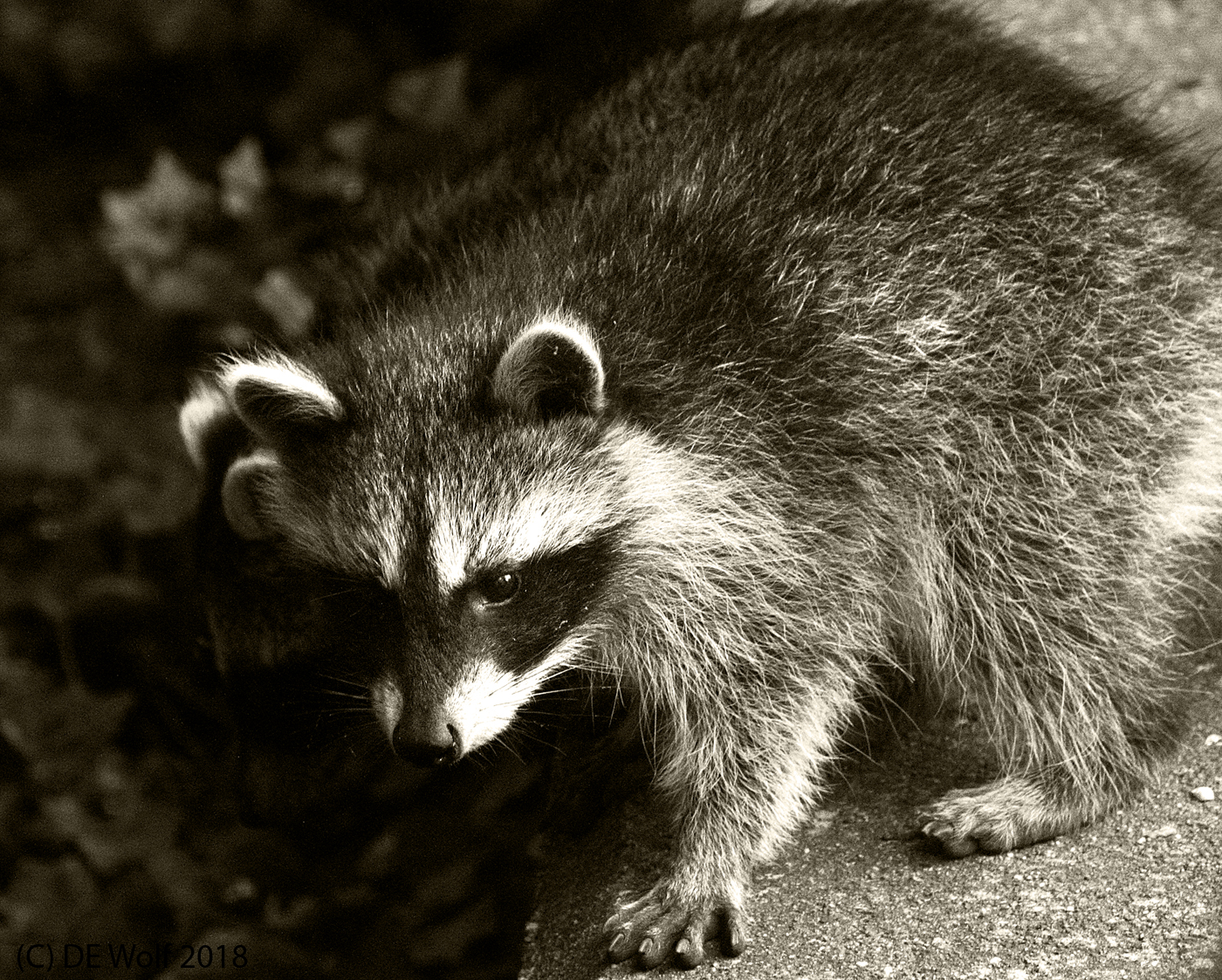I went for a walk around Heard Farm in Wayland, MA last weekend. It was hot and it was humid and generally miserable. So Figure 1 is meant to capture that sense of heat and humidity when everything glazes over and fades into an atmospheric haze. What is most striking is the sharply defined height of the grass – all the same. I am thinking of the same timeless scene perhaps a century ago; so 1918. That was a time when one could not seek the relief of air conditioning, which adds a kind of desperation to the moment. But the scene itself would have been generally the same, captured on a dry plate or on film and printed, perhaps, on albumin.
Canon T2i with EF70-200mm f/4L USM lens at 87 mm, ISO 1600, Aperture Priority AE Mode, 1/4000th sec at f/7.1 with -1 exposure compensation.

